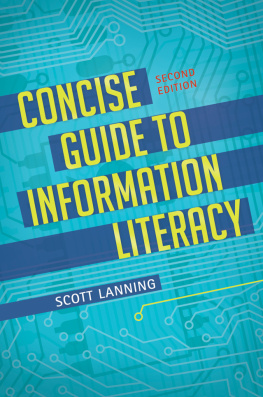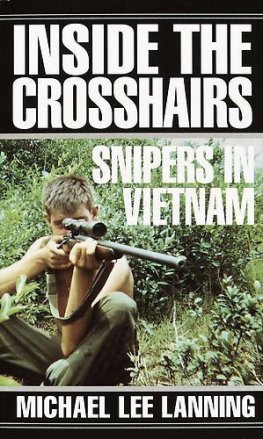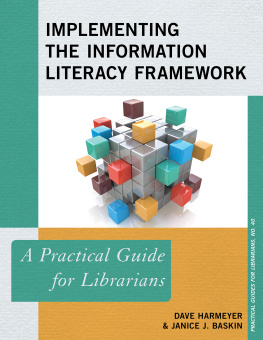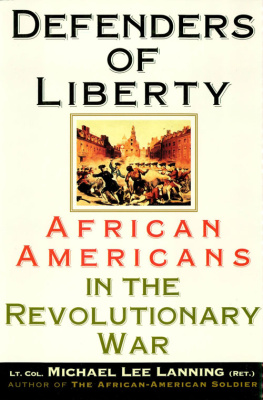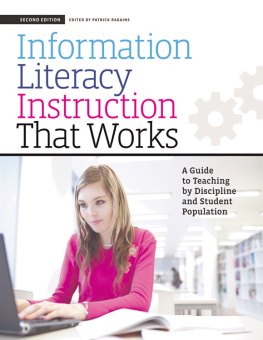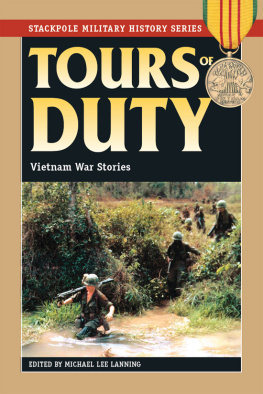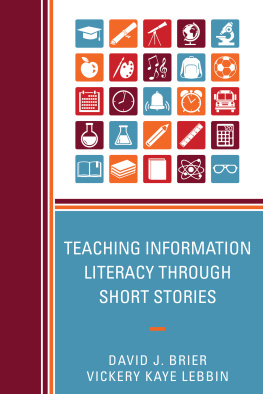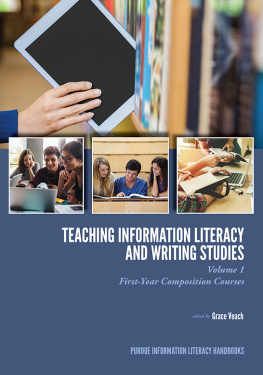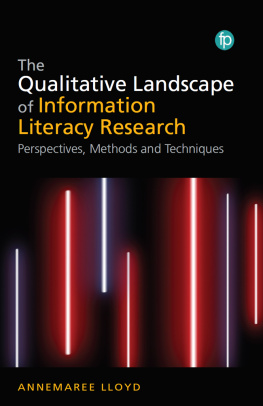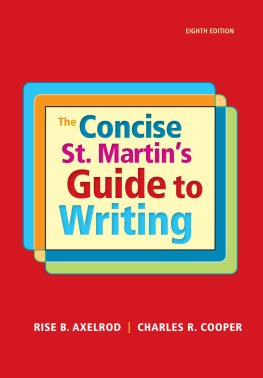Lanning - Concise Guide to Information Literacy
Here you can read online Lanning - Concise Guide to Information Literacy full text of the book (entire story) in english for free. Download pdf and epub, get meaning, cover and reviews about this ebook. City: Santa Barbara;Calif, year: 2017, publisher: Libraries Unlimited, an imprint of ABC-CLIO, LLC, genre: Romance novel. Description of the work, (preface) as well as reviews are available. Best literature library LitArk.com created for fans of good reading and offers a wide selection of genres:
Romance novel
Science fiction
Adventure
Detective
Science
History
Home and family
Prose
Art
Politics
Computer
Non-fiction
Religion
Business
Children
Humor
Choose a favorite category and find really read worthwhile books. Enjoy immersion in the world of imagination, feel the emotions of the characters or learn something new for yourself, make an fascinating discovery.
- Book:Concise Guide to Information Literacy
- Author:
- Publisher:Libraries Unlimited, an imprint of ABC-CLIO, LLC
- Genre:
- Year:2017
- City:Santa Barbara;Calif
- Rating:4 / 5
- Favourites:Add to favourites
- Your mark:
- 80
- 1
- 2
- 3
- 4
- 5
Concise Guide to Information Literacy: summary, description and annotation
We offer to read an annotation, description, summary or preface (depends on what the author of the book "Concise Guide to Information Literacy" wrote himself). If you haven't found the necessary information about the book — write in the comments, we will try to find it.
Lanning: author's other books
Who wrote Concise Guide to Information Literacy? Find out the surname, the name of the author of the book and a list of all author's works by series.
Concise Guide to Information Literacy — read online for free the complete book (whole text) full work
Below is the text of the book, divided by pages. System saving the place of the last page read, allows you to conveniently read the book "Concise Guide to Information Literacy" online for free, without having to search again every time where you left off. Put a bookmark, and you can go to the page where you finished reading at any time.
Font size:
Interval:
Bookmark:

Concise Guide to Information Literacy
Obviously, a mans judgment cannot be better than the information on which he has based it.
Arthur Hays Sulzberger
Publisher of The New York Times from 1935 to 1961
Knowing a great deal is not the same as being smart; intelligence is not information alone but also judgment, the manner in which information is collected and used.
Carl Sagan
Astrophysicist and writer
Second Edition
Scott Lanning

Copyright 2017 ABC-CLIO, LLC
All rights reserved. No part of this publication may be reproduced, stored in a retrieval system, or transmitted, in any form or by any means, electronic, mechanical, photocopying, recording, or otherwise, except for the inclusion of brief quotations in a review, without prior permission in writing from the publisher.
Library of Congress Cataloging-in-Publication Data
Names: Lanning, Scott, author.
Title: Concise guide to information literacy / Scott Lanning.
Description: Second edition. | Santa Barbara, California: Libraries Unlimited, an
imprint of ABC-CLIO, LLC, [2017] | Includes bibliographical references and index.
Identifiers: LCCN 2016056351 (print) | LCCN 2017006849 (ebook) |
ISBN 9781440851384 (paperback: acid-free paper) | ISBN 9781440851391 (ebook)
Subjects: LCSH: Information literacyHandbooks, manuals, etc. | Information retrieval
Handbooks, manuals, etc. | ResearchMethodologyHandbooks, manuals, etc. |
Report writingHandbooks, manuals, etc.
Classification: LCC ZA3075 .L36 2017 (print) | LCC ZA3075 (ebook) | DDC 028.7dc23
LC record available at https://lccn.loc.gov/2016056351
ISBN: 978-1-4408-5138-4
EISBN: 978-1-4408-5139-1
21 20 19 18 17 1 2 3 4 5
This book is also available as an eBook.
Libraries Unlimited
An Imprint of ABC-CLIO, LLC
ABC-CLIO, LLC
130 Cremona Drive, P.O. Box 1911
Santa Barbara, California 93116-1911
www.abc-clio.com
This book is printed on acid-free paper 
Manufactured in the United States of America
To my best friend, and biggest fanmy beautiful wife.
Information and Information Literacy
You will learn:
- What this book is about
- What literate means
- What information is
- What information literacy is
- Why information literacy is important
This book is full of jargon. Jargon is the language of a discipline. In this case, the jargon in this book concerns information literacy. Every discipline has its own vocabulary, its jargon. The jargon of biology is different from that of chemistry, sociology, psychology, math, and history. Understanding the language will help you understand the discipline.
This book will give you an understanding of the special language of information literacy and try to teach you some of the fundamental concepts of the discipline with the intent of giving you enough skills to participate successfully in the information world, and enjoy all the benefits that being information literate entails in the world at large and as your information skills continue to grow.
We all have a basic understanding of what it means to be literate. When we say someone is literate, we usually mean that that person can read and write. If someone is illiterate, he or she is lacking in one or both of those skills. This is indeed one of the meanings of literate.
However, there is a much broader and older definition of literate. According to the Oxford English Dictionary , a literate person is an educated person ("Literate" 2016). This meaning of literate dates to about A.D. 1475. So what does it mean to be educated? In A.D. 1475, it meant being able to read and write. What does it mean to be educated, today? We have more information, more technology, and more ways to communicate it than anyone from the Middle Ages could have dreamed. We need to know more than just how to read and write to be literate.
We need a wide range of discipline-specific literacies to be educated. We need:
- Visual literacy
- Digital literacy
- Financial literacy
- Geographic literacy
- Cultural literacy
- Media literacy
- Scientific literacy
- Digital life literacy
- Health literacy
- Computer literacy
- Historical literacy
- STEM literacy
- Data literacy
- Metaliteracy
- Civic literacy
- Economic literacy
- Multicultural literacy
- Global literacy
- Critical literacy
- Information literacy
Don't be intimidated by this partial list of literacies. You don't need to be an economist to be economically literate. You need to know enough about economics to understand the impact local, national, and world economic issues have on you and others.
You need to understand that some of these literacies overlap each other. For example, being economically literate will help you with your global literacy. However, the concept of global literacy encompasses much more than just economics, including civics, sociology, labor, and the environment among other topics.
The focus of this book is information literacy, and it includes aspects of data, digital, civic, media, visual, and other literacies. We will get to all of these in one form or another in this book, but right now, we need to start with the basics.
We looked at literacy. Now we will examine information. Information is defined as:
Data which has been recorded, classified, organized, related, or interpreted within a framework so that meaning emerges. ("Information" 2003)
Information can take many forms. It can be words on a page, charts, tables, graphs (), pictures, audio, and video. Is the following information?
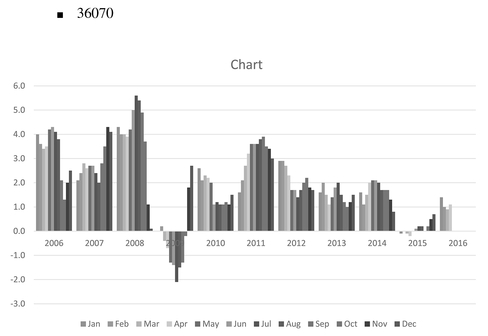
: Undefined Chart
No. Neither of these is information. They are data. They need some kind of context for their meaning to be discerned. In the first case, we have a number and no idea what it means beyond its numerical value. We can rewrite the number as 36,070 ft. Now we know it is a measure of something. If we place this measurement in the Pacific Ocean, then you would be right in saying this is the depth of the Mariana Trench ("Mariana Trench" 2016).
In the case of the chart, if we add more information to it to give it a context from which it can be understood, it would look like this ().
Now our chart makes more sense. It is the rate of inflation in the United States for the past 10+ years by month ("Bureau of Labor Statistics Data" 2016). Now both of these are examples of information.
Not only are there many forms that information can take, but there are also many sources of information. Information can come from traditional sources like news outlets, which may be a television broadcast, a Website, or a magazine. Information can be discovered, and uncovered. The scientists at CERN who discover new subatomic particles, and pass that information on to us, have created new information. The researcher who finds a medicinal use for a plant from the South American rain forests, and published her findings has created information. You will create information every time your write a paper.
Font size:
Interval:
Bookmark:
Similar books «Concise Guide to Information Literacy»
Look at similar books to Concise Guide to Information Literacy. We have selected literature similar in name and meaning in the hope of providing readers with more options to find new, interesting, not yet read works.
Discussion, reviews of the book Concise Guide to Information Literacy and just readers' own opinions. Leave your comments, write what you think about the work, its meaning or the main characters. Specify what exactly you liked and what you didn't like, and why you think so.

